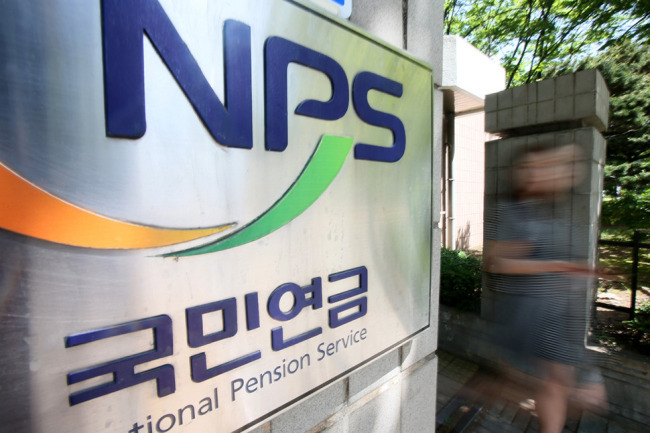State pension to increase overseas investment to 50% in 2024
By YonhapPublished : May 31, 2019 - 16:37
South Korea's state pension will gradually increase its overseas investment to some 50 percent of its assets under management in 2024 as part of its effort to boost returns and diversify its portfolio, its management committee said Friday.
Under the five-year investment plan, the National Pension Service, the fund's operator, aims to log a return rate of 5.3 percent for the 2020-2024 period.
Under the five-year investment plan, the National Pension Service, the fund's operator, aims to log a return rate of 5.3 percent for the 2020-2024 period.

As of late 2018, some 30.1 percent of the pension fund's assets were invested in overseas assets.
"With global financial market volatility rising amid the ongoing trade dispute between the United States and China, uncertainties surrounding Brexit and slower growth at home, there is a need to diversify the investment portfolio abroad to generate profit," the pension service said.
The NPS also plans to increase investment into corporate debts that carry higher yields than those of state debts.
Stock investments will account for 45 percent of its assets invested in 2024, with bond and alternative investments each making up for 40 percent and 15 percent.
For the year, some 38 percent of its assets under management will be invested in stocks, with 49.3 percent in debts and 12.7 percent in alternative assets.
The NPS, South Korea's top institutional investor, had 675.3 trillion won ($567 billion) in assets under its management as of end-March, up 36.5 trillion won from three months earlier.
The fund posted a return rate of 4.83 percent in the first quarter of 2019 on the back of solid performances in domestic and foreign stock markets.
Last year, the national pension fund logged a minus 0.9-percent return rate due to unfavorable market conditions. The poor performance marked the first time in a decade that the fund's return rate stayed in negative terrain.
The cumulative return rate of the state pension fund, which was launched in 1988, stood at 5.19 percent as of end March. (Yonhap)











![[From the Scene] Monks, Buddhists hail return of remains of Buddhas](http://res.heraldm.com/phpwas/restmb_idxmake.php?idx=644&simg=/content/image/2024/04/19/20240419050617_0.jpg&u=20240419175937)



![[From the Scene] Monks, Buddhists hail return of remains of Buddhas](http://res.heraldm.com/phpwas/restmb_idxmake.php?idx=652&simg=/content/image/2024/04/19/20240419050617_0.jpg&u=20240419175937)

![[KH Explains] Hyundai's full hybrid edge to pay off amid slow transition to pure EVs](http://res.heraldm.com/phpwas/restmb_idxmake.php?idx=652&simg=/content/image/2024/04/18/20240418050645_0.jpg&u=20240419100350)

![[Today’s K-pop] Illit drops debut single remix](http://res.heraldm.com/phpwas/restmb_idxmake.php?idx=642&simg=/content/image/2024/04/19/20240419050612_0.jpg&u=)